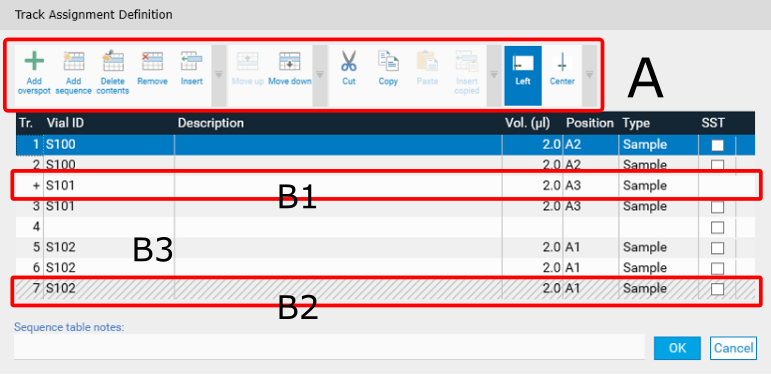Track Assignment¶
The Track Assignment defines the vials to apply for the method/analysis. Each application is identified by a track number (field Tr.). Depending on the plate layout parameters, the track number gives a position on the plate. It’s possible to leave some tracks empty (for example, track 4 in the next capture), and to perform multiple applications on the same track (for example, track 2 in the next capture). In this last case, the overspotted tracks are identified with a + sign. In analysis files, the Vial ID/volume of each application is required, and in case of an application using the ATS4 instrument, the rack position is required too.
Note
Since visionCATS 2.4, the case of vial and substance names is checked to avoid any duplicates because of different cases and substance and vial names can be created with any case (“testsubstance”, “TestSubstance” or “TESTSUBSTANCE” are allowed).
Each track of the Track Assignment is either defined as Reference or Sample. This setting documents the role of each track and, in the whole Evaluation part, has a major influence because it determines the tracks used to compute the calibration function and the tracks used to compute the results of the evaluation.
An additional SST check box is used to define the SST tracks. See System Suitability Testing (SST) for more details.

A) Track Assignment toolbar with (left to right):
Overspot
Delete the content of a track only
Remove a track and its content
Add an empty track
Move track up
Move track down
Cut track
Copy track
Paste track content
Insert copied / cut tracks

Track alignment setting: Align the tracks on the plate beginning on the left side or centered
B) Track Assignment View with:
B1) Overspotting track (will be applied on top of the already existing track)
B2) Track overlap (does not fit on plate with current track layout
B3)
Next to the Vial ID, indicates that the vial has been imported from a foreign system